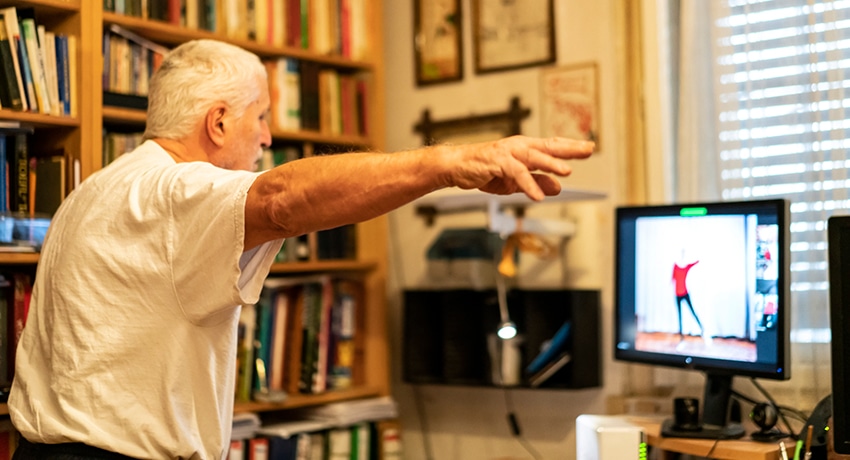What is good for the heart is also good for the brain. For Parkinson’s Awareness Month in April, a neurologist reminds people to move their bodies.

“We can treat Parkinson’s symptoms, but we don’t have a cure yet,” said Melissa J. Christie, MD, neurologist with UT Physicians. “The only thing that has been shown to prevent it or slow down progression is cardio-type exercise. The largest study recommends 150 minutes per week, about 30 minutes a day, five days per week.”
The exercise does not need to be intensive, only consistent.
Parkinson’s disease affects approximately 1 million people in the United States. It is the second-most common neurodegenerative disease after Alzheimer’s disease.
“It can be easy exercise, like brisk walking. It doesn’t have to be a marathon,” said Christie, assistant professor of neurology with McGovern Medical School at UTHealth Houston. “Exercise is so important for staving off Parkinson’s and other neurodegenerative diseases because it helps to improve connections of neurons in the brain.”
Parkinson’s disease is a brain disorder that causes a progressive loss of motor control that includes muscle stiffness, slowness, and/or tremors. Most people with the disease develop it after age 50, but a small percentage develop it much earlier.
“It’s caused by loss of dopamine in the brain,” Christie said. “It affects the central nervous system and leads to issues of abnormal movement as well as other non-motor symptoms, such as depression, anxiety, constipation, and insomnia.”
“It progresses slowly, so most patients still have an average life expectancy,” Christie added. “However, what neurologists like myself try to do is improve their quality of life.”
Current treatments include oral medications, continuous levodopa wearable pump, and deep brain stimulation.
“Most Parkinson’s medications help to either directly give back dopamine to the brain, or to stimulate the brain’s dopamine receptors,” Christie said. “The treatments can help patients remain independent, reducing their risk of falls or need for nursing home care; and many patients can live independently for one to two decades with the disease.”
The key to successful treatment, however, is early diagnosis.
“It’s important to know that not everyone with Parkinson’s has tremors,” Christie said. “While 80% do, about 20% don’t. These patients sometimes get a delayed diagnosis. The primary symptom is slowness of movement called bradykinesia. If there is a change in gait and symptoms of muscle stiffness, it’s important to get screened.”
To help reduce the risk of Parkinson’s disease — as well as other diseases — it is important to keep moving.
“Exercise is a preventive medicine for nearly all diseases. It increases blood flow and oxygen to not just strengthen your heart but also reduce your risk of neurological disease,” Christie said. “It also keeps keep the body fit and fights degeneration that can come from a sedentary lifestyle.”
To schedule an appointment with the movement disorders team at UTHealth Houston, call 713-500-7100.



